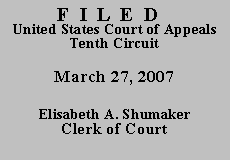

| UNITED STATES OF AMERICA, |
|
| v. | |
| JOSE CRUZ MONTERO-MONTERO, |
I. BACKGROUND
The presentence report (PSR) computed Mr. Montero's offense level of 22 by starting with a base offense level of eight, see United States Sentencing Guidelines (USSG) § 2L1.2(a), adding 16 for being previously deported after a drug-trafficking conviction for which he received a sentence of five years' imprisonment, see id. § 2L1.2(b)(1)(A)(I), and subtracting two for accepting responsibility, see id. § 3E1.1(a). His criminal-history category of V was based on three previous drug convictions and an outstanding bench warrant that issued when he failed to complete alcohol treatment after a DUI conviction. In particular, he received three criminal-history points for the conviction used to increase his base offense level by 16.
Mr. Montero objected to the PSR at sentencing, contending that his prior felony conviction was unreasonably "double-counted." He also argued that each of the sentencing factors in 18 U.S.C. § 3553(a) supported a below-Guidelines sentence. The district court overruled his objection to double counting, but further reduced Mr. Montero's offense level by one for acceptance of responsibility and sentenced him to 70 months' imprisonment.
II. DISCUSSION
Mr. Montero challenges the reasonableness of his sentence. See United States v. Booker, 543 U.S. 220, 261 (2005) (reviewing sentences for unreasonableness). "[T]he reasonableness standard of review set forth in Booker necessarily encompasses both the reasonableness of the length of the sentence, as well as the method by which the sentence was calculated." United States v. Kristl, 437 F.3d 1050, 1055 (10th Cir. 2006). "Reasonableness review is guided by the factors set forth in 18 U.S.C. § 3553(a), which include the nature of the offense and characteristics of the defendant, as well as the need for the sentence to reflect the seriousness of the crime, to provide adequate deterrence, to protect the public, and to provide the defendant with needed training or treatment." Id. at 1053 (internal citation omitted). We review the district court's "factual findings for clear error and legal determinations de novo." Id. at 1054.
We recently rejected a contention that a previous conviction may not be used to calculate both an illegal reentrant's criminal history as well as his offense level. See United States v. Ruiz-Terrazas, No. 06-2138, 2007 WL 576034 (10th Cir. Feb. 26, 2007). We similarly reject Mr. Montero's argument. We "are mindful of the general rule that the Sentencing Commission plainly understands the concept of double counting, and expressly forbids it where it is not intended." United States v. Groves, 369 F.3d 1178, 1186 (10th Cir. 2004) (internal quotation marks omitted). No such prohibition is present here.
In the context of illegal-reentry crimes, not only has the Sentencing Commission declined to forbid double counting expressly, it has expressly approved of it. See USSG § 2L1.2 cmt. 6 (conviction used for an offense-level enhancement under § 2L1.2(b)(1) is "not excluded from consideration of whether that conviction receives criminal history points . . . ."); see also United States v. Hernandez-Fierros, 453 F.3d 309, 313 (6th Cir. 2006) ("[B]ecause the Application Note 6 explicitly allows for double counting under this Guideline, defendant's primary rationale for why this Guideline is unreasonable is not persuasive.").
We also reject Mr. Montero's claim that his sentence is unreasonably long. The district court consulted the advisory Sentencing Guidelines and saw no reason to vary from them. Although there were some extenuating factors, the sentence was appropriate for someone who had twice been deported, had been convicted of three drug crimes, and was wanted on an outstanding bench warrant at the time of his arrest.
III. CONCLUSION
We AFFIRM the judgment below.
ENTERED FOR THE COURT
Harris L Hartz
Circuit Judge
*.After examining the briefs and appellate record, this panel has determined unanimously to honor the parties' request for a decision on the briefs without oral argument. See Fed. R. App. P. 34(f); 10th Cir. R. 34.1(G). The case is therefore ordered submitted without oral argument. This order and judgment is not binding precedent except under the doctrines of law of the case, res judicata, and collateral estoppel. It may be cited, however, for its persuasive value consistent with Fed. R. App. P. 32.1 and 10th Cir. R. 32.1.